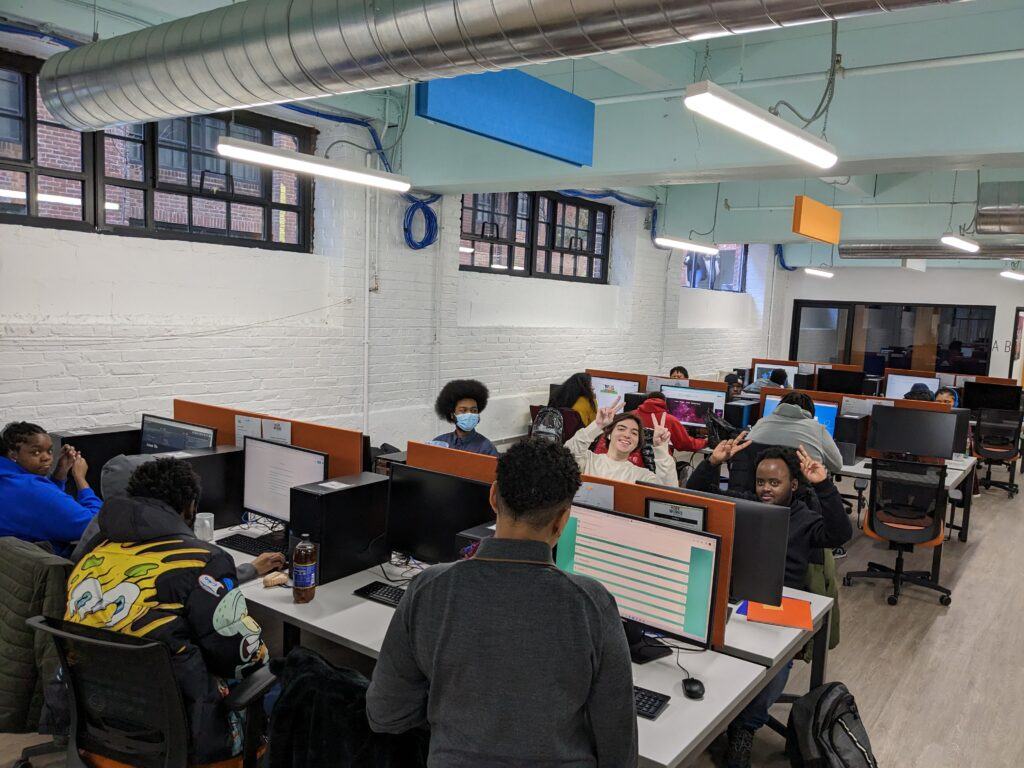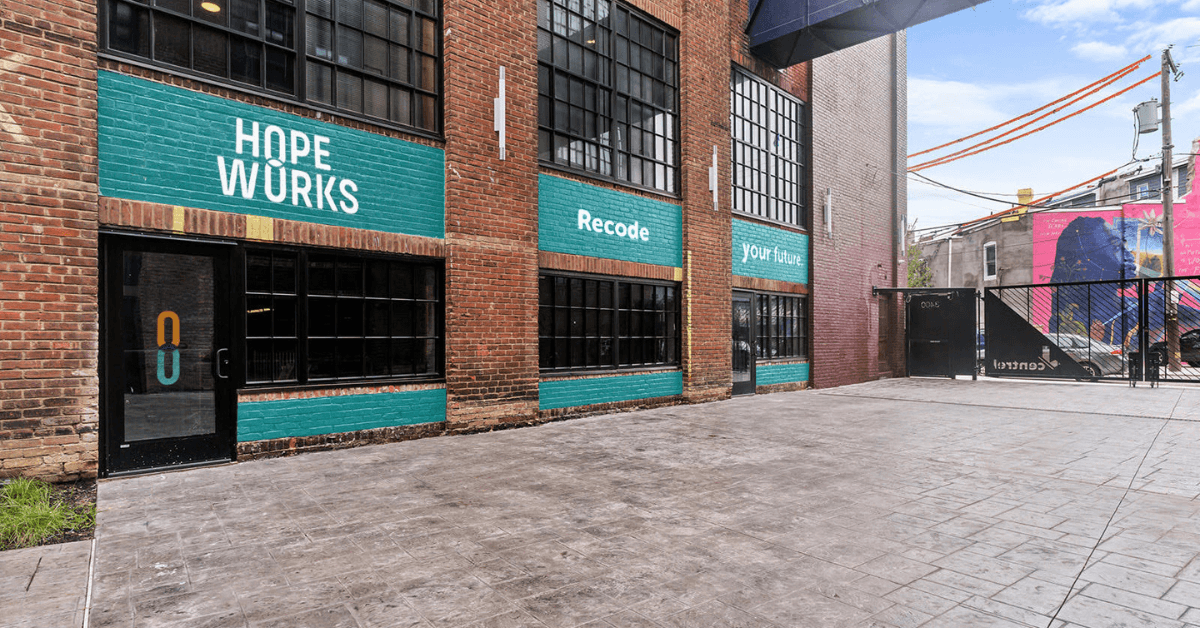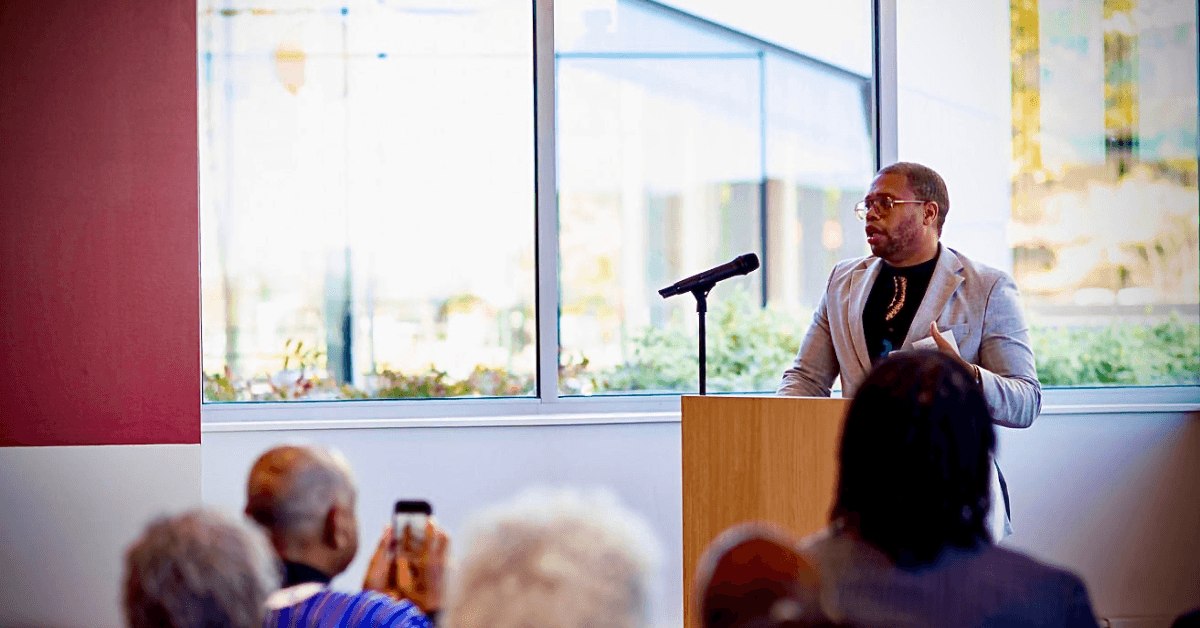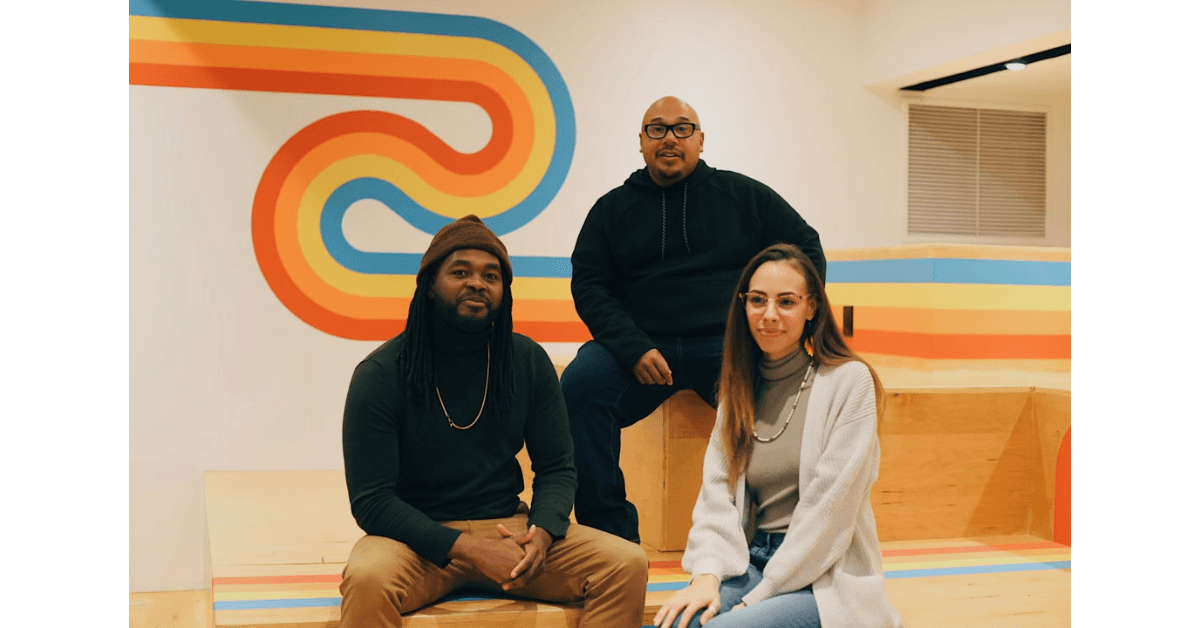KEY INSIGHTS:
- Hopeworks recently expanded from Camden to Philadelphia’s Kensington neighborhood to prepare young adults for tech jobs.
- The non-profit serves people who are unemployed and connects them to jobs after completing the program with an average salary of $43,000.
- Hopeworks anticipates connecting 60 people to employment opportunities by the end of the year.
The need for a tech training center for young adults in Philadelphia was clear — just a couple of months after opening its doors, every seat at Hopeworks is not only full, it has a waiting list.
Hopeworks’ headquarters are in Camden, New Jersey, where it has trained people aged 17 to 26 in tech skills and helped connect them to employment since 2000. The average salary of a participant at the end of the program is $43,000 a year, with an 88 percent 12-month retention rate.
“We use tech, but we’re really about ending poverty,” Executive Director Dan Rhoton told The Plug. “One thing we’ve learned about how Hopeworks is if you’re going to be addressing poverty, you have to be proximate to poverty.”
That is why the nonprofit decided to expand into the Kensington neighborhood after having increased interest from Philadelphia-area young adults and employers at the Camden location. The expansion was funded, in part, by a $600,000 grant from GreenLight Fund Philadelphia.
“Especially for Black and brown young adults who are going to be dealing with impostor syndrome and a society that norms they shouldn’t be in these high wage spaces, it is important that when they walk into Hopeworks, it looks like wherever they’re going to end up working,” Rhoton said.
Before opening, Hopeworks spoke and worked closely with community organizations like Kensington Corridor Trust, Impact Services and New Kensington CDC, to best serve a neighborhood simultaneously impacted by gentrification and the opioid crisis, Rhoton explained.
Participants are coming from all corners of Philadelphia to participate in the program. There are currently 25 seats, all of which are full, and a waiting list of over 100 people.

Participants are trained in HTML, CSS, JavaScript, Geographic Information System (GIS), as well as basic office technologies like spreadsheets. In addition to learning technical skills, Hopeworks is also focused on personal and professional development through individualized coaching, which they believe is more effectively done in person rather than virtually.
“If you’re a Black and brown young adult entering into predominantly white workspaces you have to have ways to advocate for yourself,” Rhoton said.
The center is also set up as a tech workspace rather than being in a classroom setting or cohort-based. The model of the program caters to the people it serves, some of whom did not graduate from high school or are unable to participate in traditional tech boot camps. The program is a self-paced curriculum and to complete the training, participants have to pass a job readiness assessment in addition to a technical assessment.
“We know if a young adult doesn’t retain it’s almost always because of housing, mental health or straight-up racist toxic work environments,” Rhoton said. To mitigate this, Hopeworks connects participants to housing and mental health resources and is intentional with job placements.
Another hiring barrier young adults face is a lack of job experience, so Hopeworks hires graduates first for a six-month internship. The non-profit provides technical services for companies across the country. After this, graduates are then placed with employer partners. Some alumni have even gone on to become coaches at Hopeworks.
“The interesting thing we found is the most successful coaches are not always the best coders. They’re the ones that have shared experiences,” Rhoton said.
By the end of the year, Hopeworks anticipates it will place about 60 young adults in full-time jobs. Coming up next month the organization is hosting a hackathon on March 18 to build an interactive asset map of the Kensington community.
“The goal is number one, to build a tool that’s useful for folks, and number two, to help tell a different story about Kensington,” Rhoton said.








